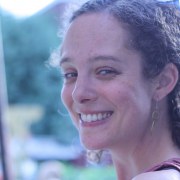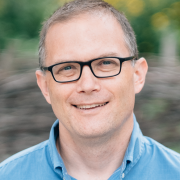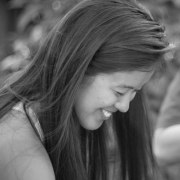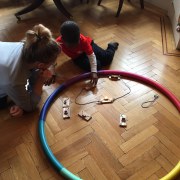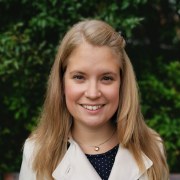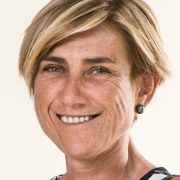Tools for measuring STEAM learning
While museum-based researchers and evaluators advance work in understanding various aspects of STEAM learning and in particular the discussion about learning through making and tinkering experiences in museums, we lament the lack of robust measurement tools that can be used for research and evaluation of these experiences. In this session, we will share work from five projects that have developed various measurement tools or approaches, including surveys and observation protocols, that provide museum educators, researchers and programme administrators with information to evaluate maker programmes and experiences with youth.
First, the panel will describe their development process and measurement tools, including the tensions that emerge when developing a tool to be used in a complex setting like a museum. Second, panel members will take the audience through the use of one measurement tool, grounding the conversation in what measurement looks like in practice. Third, panel members will facilitate a discussion about museum-based measurement of learning.
While making serves as the overall context for this work, principles of measurement tool design that we discuss apply more broadly to STEM/STEAM-based learning experiences in museums.
Facilitator
Director of Learning & Research
Children's Museum of Pittsburgh
Session speakers
Assistant Professor of STEAM Education
Peter will share work from a project working with three different museums in the United States: a children’s museum and two science museums. All three museums are working with a research team (including the convenor) to co-design observation tools for measurement and improvement that document evidence of learning in museum making and tinkering spaces. Peter will share the tool as well as discuss practical challenges and opportunities that have surfaced in each of the museums.
Stephanie will be contributing insights from two specific projects. One is an NSF effort, in collaboration with MIT’s Teaching Systems Lab, focused on developing embedded assessment for maker-centered classrooms. These are low-tech assessment tools for self-, peer-, and educator use, centered on unearthing evidence related to both skills & content. A second is an IMLS Forum effort that brings together researchers and practitioners to further collaborate and provide better access to research.
Elizabeth is the founder of WonderWorld Science, a STEM-learning initiative that brings Tinkering workshops into schools and provides teacher training across London. She is currently pursuing a PhD in Educational Research at Cambridge University looking at the the ways in which tinkering supports science content learning in school-age children. She will discuss the tensions that exist between the cultures and epistemologies of schools related to measurement and assessment and the flexibility and process-orientation she is introducing through her tinkering programs.
Rannei Solbak Simonsen is an educator at Tekniska museet, the National Museum of Science and Technology in Oslo, Norway. Rannei designs and supports tinkering educational activities both in and outside of her museum. As tinkering educational activities are enacted in settings outside of the museum, Rannei negotiates what success looks like for different partners with whom she works. In this session, Rannei will share how she manages multiple notions of success in her tinkering work and their implications these perspectives have on measurement and evaluation.
Caterina Ginzburg is the manager of Xkè? (Why?), a Centre where schools (children 6 to 13) can find lab activities on science, math, robotics (more than 27 workshops are offered). Xkè? is a place for informal education activities, financed by Compagnia di San Paolo (Bank Foundation) in Torino (Italy).
Moreover the labs schools take @ the Centre, Xkè? is working on tinkering activities into schools; we bet that tinkering can represent a good path for inclusion and creativity, connected with inquired based method. Piloting on tinkering into schools gave back good assessment on how it can integrate formal education program and curricula, through a good mix between cooperation and competition.
To scale up the process, measuring is mandatory, but the point is how (tools) and what (soft skills or curricula?)

